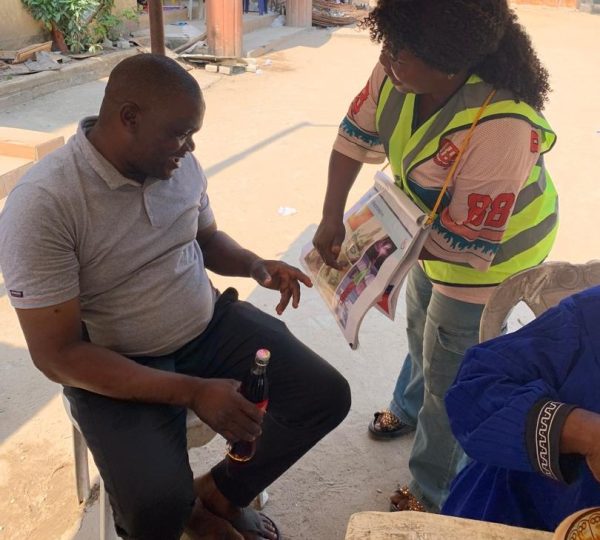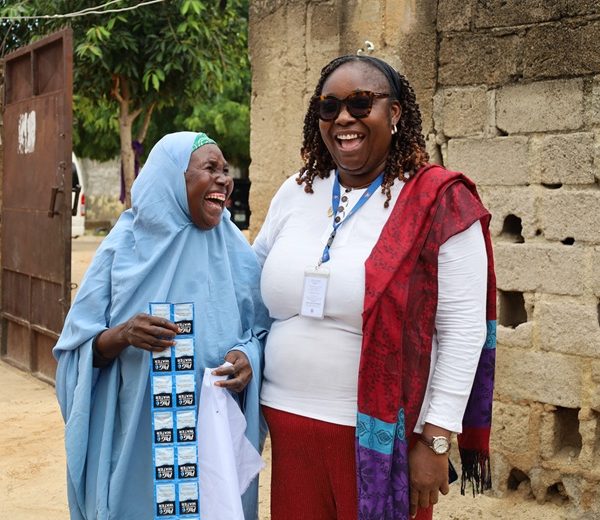RIHHWID Project: Bridging the Gap to Comprehensive HIV and Hepatitis C Services for Women Who Inject Drugs
By Elizabeth Ogundele
Every day, countless women who inject drugs face the double threat of life-threatening infections, such as viral hepatitis and HIV, and overdose. Yet, they often experience significant barriers to the lifesaving healthcare they need, compounded by stigma and discrimination.
Globally, an estimated 5.5 million people who inject drugs are living with hepatitis C, and women within this population face even greater barriers to accessing prevention, testing, and treatment.
Women who inject drugs face unique challenges in accessing healthcare due to stigma, discrimination, criminalisation, poverty, homelessness, and sexual and gender-based violence (SGBV). They often lack access to accurate information about safe injection practices and sexual health, and are hesitant to seek help or access harm reduction programme due to shame and fear. Additionally, they may face pressure to trade sex for drugs or money, increasing their risk of STIs and HIV.
Society for Family Health, through the ViiV Positive Action-funded Reducing the Incidence of HIV and Hepatitis among Women who Inject Drugs (RIHHWID) project, is addressing the critical healthcare needs of women who inject drugs (WIDs) in Abia, Gombe and Oyo States. SFH provides these WIDs with a comprehensive gender-sensitive harm reduction package, including community-based HIV, TB, and viral Hepatitis services that can help reduce new HIV and viral hepatitis infections, as well as mortality and morbidity due to these infections.
Amarachi Ahamefula and Vera Ushie are part of the SFH RIHHWID project team conducting outreaches to sensitise women who inject drugs on safe injection and sexual practices; and provide HIV and hepatitis testing services, cervical cancer screening, STI screening, needle syringe programme, as well as access to gender-based violence services and legal support in several bunks in Abia.
“We conduct health talks to encourage awareness of safe injection and sexual behaviour practices as well as their health rights. We have also distributed needles and syringes, lubricants, condoms, and other commodities as incentives to ensure they come out for HIV and hepatitis testing services {that we provide}. {This has improved their health behavior as they rarely access health services because of stigmatization and marginalization by police and healthcare providers},” says Vera. “Initially, they used to run away from us. {Now}, they come to us and even call to us on the streets,” she added.
“We have been able to reduce the spread of HIV and Hepatitis, and they {women who inject drugs} are more aware of their health and rights,” says Amarachi.
To date, SFH has reached 6,817 WIDs and linked them to HIV and Hepatitis prevention services in Abia, Gombe and Oyo States. 3,194 WIDs have been screened for Hepatitis C. Additionally, 5,317 WIDs have undergone HIV testing services; 55 of them have received HIV treatment services, and 2,986 WIDs have been provided with needle and syringe programme.
“I have had a very fantastic experience!” exclaimed Glory Chukwuka, a 39-year-old woman who leads the group of women who inject drugs at the bunk in Abia State. Her face lit up as she described the positive impact of the RIHHWID project and how it has helped her access essential supplies like condoms, needles, syringes and dignity kits. “They made things so easy for us.” She added.
“{Before the project} I was a bit enlightened and did not share needles, but I used needles more than once. They have taught us not to share and reuse needles. {Now}, I don’t reuse needles.” Glory continued.
Blessing Godswill, another beneficiary, echoed Glory’s sentiment, saying “{Since the RIHHWID team came}, Na only my needle I dey use. Wetin dem do for me, change me… Dem dey carry me go places.” referring to the linkage of One-Stop Shop (OSS) project beneficiaries to PrEP and STI services.
Through the RIHHWID Project, people who inject drugs at the bunk, especially women, learn about safer injection practices, healthy sexual behaviour and practices, gender-based rights, and other ways to reduce contracting HIV and Hepatitis leading to the improvement of their own health.
Society for Family Health is committed to expanding its reach and providing even more comprehensive HIV and hepatitis services for people who inject drugs. Through the ViiV Positive Action-funded RIHHWID and UNITAID-funded Hepatitis C Combination Prevention among PWID (HEPC3P) projects, we are working to increase access to harm reduction services, HIV and hepatitis testing and treatment, and other essential support services for this marginalised population. Click here to learn more about the work we do and how you can get involved.





